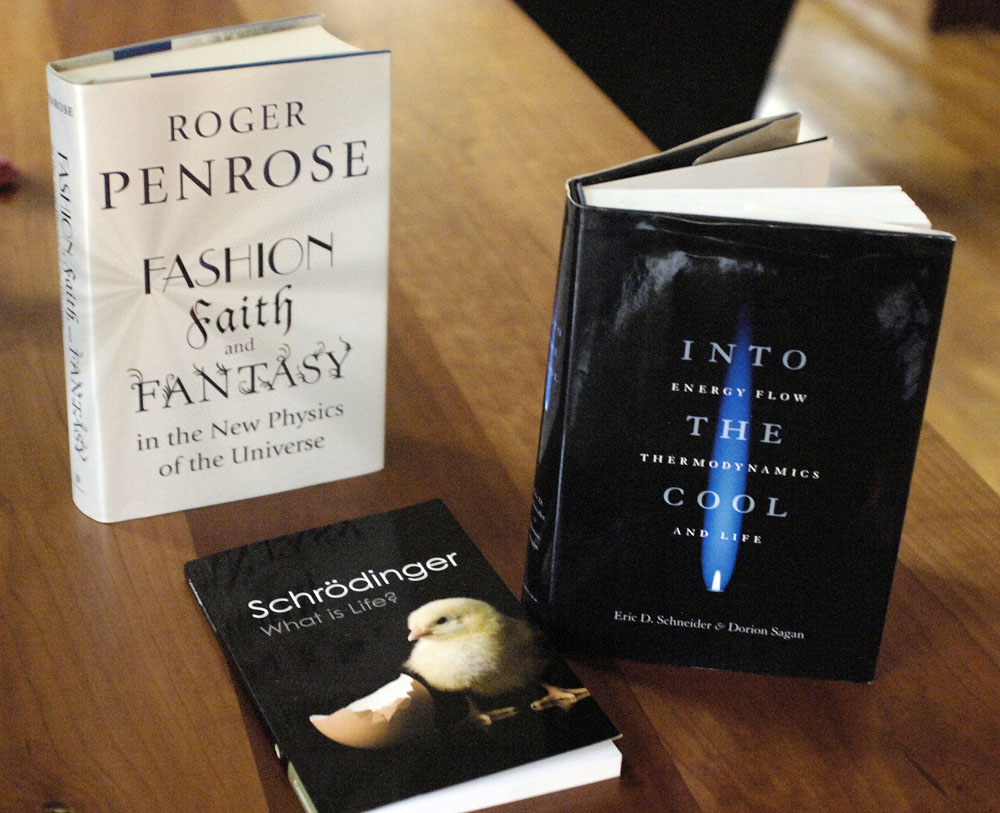
The irrepressible exuberance of Celtic (and human) eros
One of the purposes of imagination is to look at the world the way it is and then to ask ourselves: How might the world be otherwise? Science fiction does this in a systematic way. Often science fiction imagines a future world. Sometimes that future world is a better world, but sometimes it’s a dystopia.
Let’s suspend our disbelief for a moment and use our imaginations to think about human relationships. It’s not family relationships that I have in mind, but rather the kind of relationships that adults form with other adults. First, let’s think about relationships as they are. Then let’s think about how they might be otherwise, if people were more free.
If you suppose that human adults are free to form whatever kind of relationships they choose with other adults, you would be mistaken. Religion, law, and social pressure all exert control over adult relationships. Because we usually don’t bother to use our imaginations, we often don’t even notice these systems of control, let alone imagine how things could be different.
If you were an American slave before Emancipation, you did not have the legal right to marry — or any rights at all. It took a long and bloody war to settle that issue (though here in the South the damage seems to want to last forever). Not until 1967, in the Supreme Court case Loving vs. Virginia, did the U.S. Supreme Court invalidate laws against interracial marriage. In 2015, the U.S. Supreme Court, in Obergefell vs. Hodges, extended the fundamental right to marry to same-sex couples. The point here is that some people try to use any means possible, including the law and threats of hell, to impose limits on adult relationships. Whereas other people, for many long years, have been fighting to throw other people’s lifeless notions off their backs.
I’m a heretic, and as a heretic I abhor any attempt by any kind of authority — religious authority or civil authority — to impose limits on the private lives of other people. I’m hardly alone. Even in the early 19th Century, the French philosopher Charles Fourier imagined reforms for liberating human passion. From the Wikipedia article:
Fourier was also a supporter of women’s rights in a time period when influences like Jean-Jacques Rousseau were prevalent. Fourier believed that all important jobs should be open to women on the basis of skill and aptitude rather than closed on account of gender. He spoke of women as individuals, not as half the human couple. Fourier saw that “traditional” marriage could potentially hurt woman’s rights as human beings and thus never married. Writing before the advent of the term ‘homosexuality’, Fourier held that both men and women have a wide range of sexual needs and preferences which may change throughout their lives, including same-sex sexuality and androgénité. He argued that all sexual expressions should be enjoyed as long as people are not abused, and that “affirming one’s difference” can actually enhance social integration…. He had a touching concern for the sexually rejected; jilted suitors would be led away by a corps of fairies who would soon cure them of their lovesickness.
The fairies mentioned above, by the way, weren’t imaginary fairies. They instead were volunteers who comforted the rejected and forlorn.
So there has been a long struggle for freedom in human relationships. Heretics (like Fourier) have used their imaginations to ponder the failures of the prescribed relationships and venture ideas about how we might close the gaps. And, of course, the authoritarians have to be thrown off our backs and out of our lives. To authoritarians, heterosexual marriage is the only goal. It used to be that lifelong heterosexual marriage was the only approved goal. That, however, was too much even for the authoritarians, so serial heterosexual marriage, one spouse at a time, is now the accepted thing.
Screw all that. But before we can free ourselves, we first have to free our imaginations.
The first step toward freeing our imaginations, I would say, is to start with some anthropology. The bestseller Sex at Dawn: How We Mate, Why We Stray, and What It Means for Modern Relationships, is a good start. What we’re concerned with here is how human beings actually are and have been, as opposed to what authoritarians say we ought to be. So why not start with a good, hard look at human relationships through an unblinking lens that is as scientific as possible. Authoritarians see human instincts as primitive impulses to be crushed and overridden with authoritarian prescriptions. As a heretic, I see it the other way around. It’s the damned authoritarians who are to be crushed and overridden. Life is exuberant.
The first authoritarian yoke to be thrown off, then, is the hegemony of “traditional” marriage (which isn’t traditional at all, if you start the clock before the invention of patriarchal religions). Some people, no doubt, are suited for marriage and thrive within a marriage, but many don’t. Do you want to get married, have a big church wedding, and stay married to the same person for the rest of your life? Fine! No one will tell you that you can’t. If that works for you, then it’s a fine and noble thing. But you still can’t tell others what they can and cannot do.
It is generally assumed that the idea of gay marriage was cooked up by gay radicals. That’s not the case. It actually was gay conservatives who pushed for gay marriage and developed the political strategy — gay conservatives such as Andrew Sullivan, Jonathan Rauch, and Bruce Bawer (all of whom I have known, by the way). Their idea was to tame gay people, to get them to settle down, and to make gay people more acceptable to the majority. There was a great deal of pushback from more progressive gay activists, for example, Franklin Kameny. The progressive argument was that marriage was the opposite of liberation; that, rather, gay marriage was merely allowing gay people into the same authoritarian and ill-fitting yoke that straight people have been forced to wear for so long.
In any case, the first radical act, gay or straight, is throwing off the hegemony of the gold ring.
My ring system, as I describe it in Oratorio in Ursa Major, came out of my imagination. But it is based on much that is true, and I think it’s a reasonable extension of what we know about the ancient Celts before Rome and the Roman church all but wiped out ancient Celtic culture.
Archeologists know, from Celtic burials, that the Celts loved jewelry, including rings. They were found buried with finger rings of many different types of metal, including gold, silver, and copper.
We also know, from early historians, that the Celts were sexually unrepressed, even compared with pagan Greeks and Romans. Celtic women were empowered. Homosexuality was so prevalent and so unabashed among the Celtic warriors that even the Greeks found it remarkable. Perhaps more telling than anything else, though, is the Brehon law. This early Irish law almost certainly has its roots in ancient Celtic law as administered by the Druids. It persisted long into the Christian period — partly because the peasantry loved the Brehon law and greatly preferred it to Roman or English law. The Brehon law acknowledged 10 different degrees of marriage. Ten! But if you agree with the authors of Sex at Dawn, then you probably agree that Brehon law is much more faithful to the needs and realities of human instincts and behavior. You also can begin to see why so much effort was required by the Romans, and by the Roman church, to stamp out these “pagan” elements of Celtic culture. It took centuries to beat down pagan ways of living. And even after the pagan elements were pretty well stamped out by the life-despising teachings of the Roman church, in which only an unseen and untouchable next world mattered, it took an army of dreary Irish priests to keep the people down.
Remember when the Irish “Riverdance” was all the rage on PBS? That’s the spirit that you want to keep in mind here. We’re talking about the ebullience of human life and the Celtic spirit, and the Celtic refusal to be held down forever by a bunch of miserable priests. The power of the priests (thank God!) is fading, in Ireland especially, these days.
My ring system is not an effort to codify with rings the 10 different degrees of Brehon law marriage. Rather, Oratorio‘s ring system is intended to make sense to today’s readers.
I should emphasize at this point that no one should be required to wear one’s private life on one’s shirtsleeve — or on one’s fingers. There are many reasons why one might want to keep one’s personal affairs private. But this is, after all, just a thought experiment and a exercise of the imagination. And it’s a way of pushing back against the tyranny of the one ring — the gold ring. No one is required to wear any rings. But you can if you want to. And this is payback — payback for all those years of the flaunting of gold in the faces of people who weren’t entitled to it, though their secret relationships might have been better and lasted longer.
A ring might be made of something as biodegradable and impermanent as string. Who’s to criticize? Adults do that all the time. If it’s a fair exchange — both people know it’s just string — then everything is clear, no one is harmed, and as a friend of mine has said, “Everything just works better when everyone is getting laid.”
A notch above string might be leather, for those who, perhaps, had a really good summer.
People who get along exceptionally well and who want to stick together indefinitely — but with no permanent commitment — might wear brass.
People who want to spend their lives together with a permanent commitment exchange gold.
Once you have worn someone’s ring, there is no obligation to ever take it off (though you can if you want to). One might, for example, choose to wear the rings for one’s old lovers on the right hand, and current lovers on the left. Also, all of the above types of rings make no assumptions about gender. But there are two special types of rings that are gender-restricted — copper and silver. Both imply something creative, a legacy, a product of the relationship that is lasting.
A man and woman who have children together wear silver. Children aren’t necessarily seen as the fruit of love. I think that the Celts were more pragmatic about choosing whom they had children with. A woman might choose, as her domestic partners, men who were stolid and good providers. But, to father her children, she’d find herself a handsome prince whom she couldn’t otherwise possess, if she could. There actually is evidence for this, which I won’t get into here. But if you’re interested in following up on the idea, then try Googling for what Julia Domna said about Roman women, or why King Niall of the Nine Hostages left so many descendants. I am one of Niall’s descendants, according to my Y-DNA test (though some geneticists now dispute this). If true, then it’s very unlikely that whichever grandmother of mine slept with King Niall was a princess or a queen. Rather, the odds are overwhelming that she was a nice-looking country girl who had temporary access to the most desirable genes in 5th Century Ireland. As a woman both smart and free, she took advantage of that, and here I am.
Two males in a Socratic relationship wear copper. This is the least common kind of relationship. Two males, no less than male-female couples or female-female couples, might wear string, leather, brass, or even gold. But copper denotes a legacy, or some sort of cultural offspring from the relationship that the Celts saw as much like children. Copper relationships were more common with the Druids, though an exceptionally good silversmith might exchange copper rings with an exceptionally good apprentice. An elder Druid with particularly specialized knowledge — about, say, the stars, or about music, or about the properties of material substances — and who transfers that legacy of knowledge from one generation to the next and who prepares the way for the next generation, might wear a copper ring. Copper relationships imply a great deal of time spent together — years. And so there would need to be an affinity, a deeply shared interest in something too specialized and arcane (though very valuable) to be accessible by most people. Remember, we didn’t always have schools and universities, but transferring knowledge and skill from one generation to the next was always critical to human survival. Promising young men weren’t born with gold in their pockets, but they were born with something far more desirable than gold — their youth and attractiveness. With it they bought their educations, if what they needed to learn was something that their own fathers were unable to teach them. This was nature’s doing. The instincts have always been there, though for centuries thanks to the Roman church it was a thing that couldn’t speak its name. The Greeks and other pagans understood these instincts and the human arrangements that arose from them, and they codified it. Though the Christian monasteries relied on these instincts in order to function, it had to be kept secret. But the truth is that much of the cultural material that we value today was preserved over the centuries, including by the church, by copper relationships. As the Gwenlliant character says in Oratorio, “Copper is not barren. What copper creates is not of flesh, but is instead of mind and spirit. Without copper, we would be a crude people.”
So there you have it — my imaginary ring system. If you’ve read this far, then please take a moment to ask yourself what your hands would look like if they told the whole story. Would you wear all your rings for all to see? Or would you keep at least some of them private? It’s your choice. But whether you wear a gold ring or not, perhaps you can see what a lack of imagination the one-ring system expresses, and how the story one ring tells is only a small fraction of a much greater human truth that no one can really deny, no matter how many priests are sent to manage us.
What rings would you like to wear, but don’t, or can’t? Maybe there should be a system for that, too. There may be parts of the ring system that my limited imagination didn’t imagine.
And if only we had Fourier’s fairies for those who have no rings at all!

Photo: Monkeys Always Look























